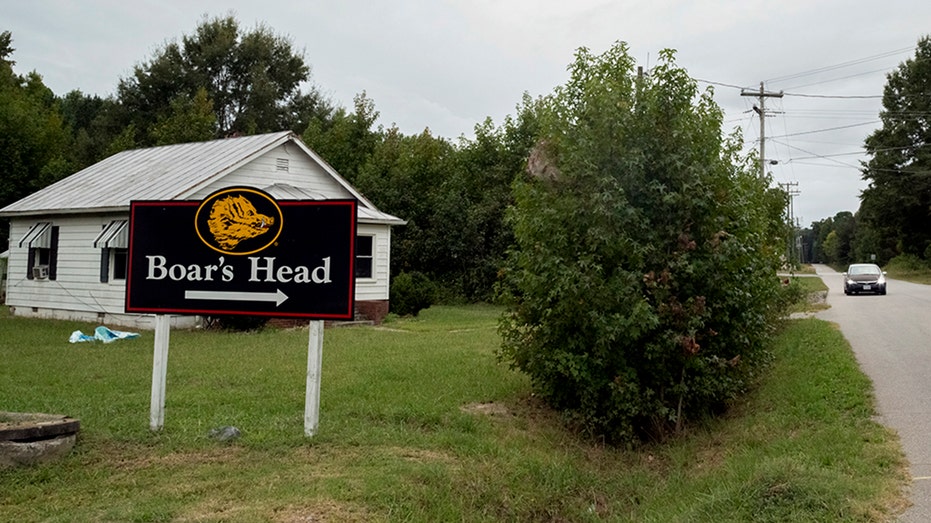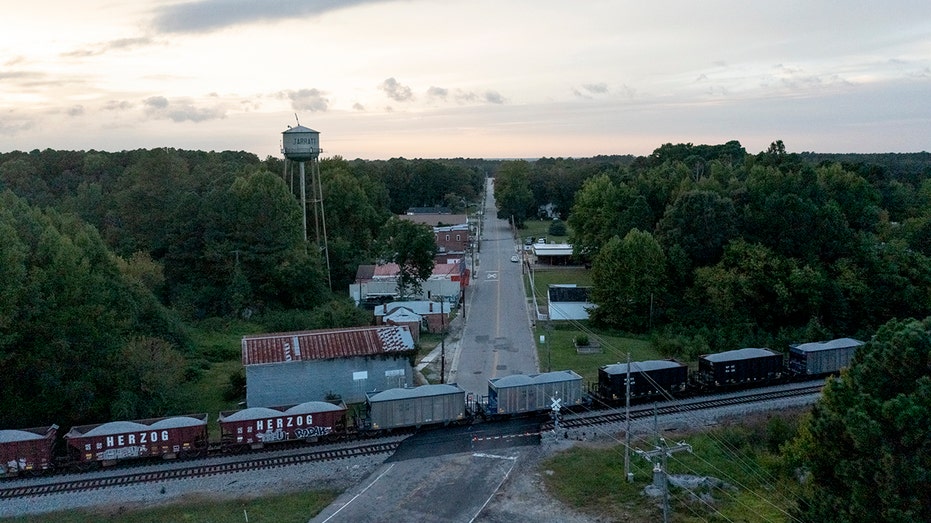FOX Business’ Lydia Hu reports on inspection records showing unsanitary conditions at Boar’s Heads plants on ‘Mornings with Maria.’
The Boar’s Head meat packaging plant in Virginia that was tied to a deadly listeria outbreak is going to reopen this year.
Boar’s Head told FOX Business that it’s been working with the U.S. Department of Agriculture (USDA) to develop “a plan to re-open our Jarratt facility in a measured, deliberate way in the coming months.”
The company said it “has an unwavering commitment to food safety and quality,” which the company says is reflected in its recent enhancements to its practices and protocols.
The USDA told FOX Business that it required the company to provide extensive evidence that it can produce safe food for the American people before lifting the suspension under strict conditions and continued scrutiny.
“Once it resumes operations, the Jarratt establishment will be operating under an enhanced verification plan for at least 90 days, which will be overseen directly by FSIS inspectors and will include intensified Listeria sampling and heightened monitoring to ensure the establishment consistently and effectively implements its corrected food safety plans,” the USDA said, adding that lapses could result in even intensified sampling and/or enforcement actions.
The Boar’s Head production plant in Jarratt, Virginia, is set to reopen a year after its closure due to a deadly listeria outbreak. ( Justin Sullivan/Getty Images / Getty Images)
The news comes just short of a year after the company announced it was indefinitely closing its Jarratt plant after federal health officials discovered that the outbreak, which spanned from May to November, was linked to liverwurst produced at the facility. The company made the decision to close the plant in September, two months before the outbreak was declared over by the Centers for Disease Control and Prevention (CDC). By the end of November, more than 60 people from 19 states were infected with the outbreak strain and hospitalized, and 10 died.
Aside from identifying the outbreak, the USDA’s Food Safety and Inspection Service (FSIS) also identified several factors that may have contributed to the outbreak, with the most notable being the “facility’s inadequate sanitation practices.” FSIS said its inspectors identified repeated instances of insanitary conditions that can present opportunities for growth or sustained presence of the bacteria strain.
BOAR’S HEAD PLANT HAD DOZENS OF VIOLATIONS, DUBBED ‘LISTERIA FACTORY’ BY LAWYER
Inspectors found the presence of meat and fat residue from the previous day’s production on equipment, including packaging equipment and in the ready-to-eat processing area during pre-operational sanitation checks.

Inspectors identified multiple instances of condensation at the production plant as well as structural issues like cracks, holes and broken flooring. (Getty / Getty Images)
This residue can provide a surface for the bacteria to survive, grow and eventually form biofilms, which can become more resistant to cleaning regimens. Biofilms are thin layers of bacteria that can form on equipment and other surfaces.
A series of non-compliance reports linked to Boar’s Head following Freedom of Information Act requests from several news agencies also revealed that “unidentified slime” and “an abundance of insects” were also found at the now-shuttered facility, according to inspectors.
BOAR’S HEAD DEADLY LISTERIA OUTBREAK: FOOD SAFETY LAWYER ASKS CONGRESS TO INVESTIGATE
Inspectors identified multiple instances of condensation, including dripping condensate on exposed product and a fan blowing condensate directly on products. There were also structural-related issues such as cracks, holes and broken flooring that FSIS said could hold moisture and contribute to wet conditions. Additional conditions documented included rust, beaded condensation and peeling caulk.
Boar’s Head’s website says its production plants “are equipped with advanced technologies that monitor every stage of the process, from sanitation to temperature control.” The company’s website also said it performs routine inspections, daily quality checks, and regular audits “to ensure all safety protocols are consistently upheld.”

Boar’s Head’s website says its production plants “are equipped with advanced technologies that monitor every stage of the process, from sanitation to temperature control.” (Getty / Getty Images)
In September 2024, when it announced it was closing the plant, the company said it would begin implementing enhanced food safety and quality measures immediately, including appointing a new chief food safety and quality assurance officer who will report directly to Boar’s Head’s president.
GET FOX BUSINESS ON THE GO BY CLICKING HERE
At the time, Boar’s Head said it was also establishing a “Boar’s Head Food Safety Council” that will be composed of independent industry-leading food safety experts, some of whom assisted with the listeria investigation.
This council is tasked with assisting the company’s adoption and implementation of enhanced quality assurance programs and is in charge of creating a new standard for food safety in the industry. They serve as advisers to the new chief food safety officer and to the company overall, the company said.